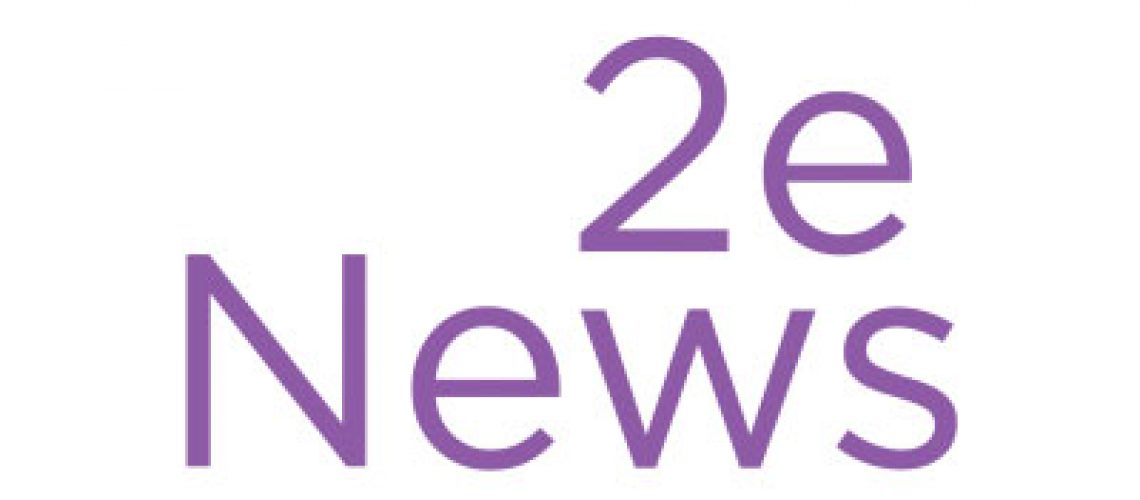When it comes to supporting parents and educators of twice-exceptional students, and 2e kids themselves, Julie Skolnick sums up her mission in two words: “relieve loneliness.”
Skolnick is the founder of With Understanding Comes Calm, a Maryland-based organization supporting 2e students, adults, and parents through consulting services, podcasts, resources, and a virtual conference called 2 Days of 2e. She sees the massive obstacles standing in the way of twice-exceptional students struggling to be heard, their parents wanting to advocate for them, their therapists needing to identify them, and their teachers having to create learning strategies for them.
“Teachers are lonely,” Skolnick says. “For the teachers who get 2e, they’re surrounded by people who say, ‘Why aren’t your expectations this? Why aren’t there consequences for that? Why do you let them get away with this?’ Parents are lonely, too, because they’re sitting in the park hearing, ‘My kid can do this’ and ‘My kid can do that’ and your kid is having a tantrum in the sandbox. Even clinicians feel lonely because maybe they understand, but someone says maybe we don’t medicate or don’t say ADHD, and they have to look at that child through a 2e lens.”
It’s exhausting to most people just to navigate through all of that. That’s where Skolnick comes in. She strives to empower parents, teachers, and clinicians to raise self-esteem in 2e children and their parents to help them reach their full potentials.
“That self-esteem piece is number one, two, and three,” she says. “Without it, you have to dig out of a hole just to get to the surface.”
A career in 2e wasn’t always the goal for Julie Rosenbaum of Rochester, N.Y. After graduating from Colgate, earning a master’s degree in sociology from Boston College, and a law degree from Cornell, she practiced law in Boston for several years. Along the way, she married Eric Skolnick, an anesthesiologist, and had three kids. It was when her middle child was in kindergarten — and while Julie was pregnant with her third child — that she began to notice a disconnect between how her son learned and how he was taught.
So she had her “cute, little five-year-old” tested. He proceeded to answer all the questions in Hebrew because he thought it would be nice to teach the adults something, as what they were doing was, according to the child, kind of boring.
“We got this huge, extraordinarily not useful neuro-psych report that I still can’t tell you what it says,” Julie says. “But it did say highly gifted and ADHD. I thought ‘gifted’ meant what it did when we were kids, which is they put you in a higher reading group, so I ignored it.”
Instead, she did what many parents and teachers do and over-obsessed about the “learning disability” part of the evaluation. She went on a three-year “whole hog” investigation of everything related to ADHD, reading the books, going to the conferences, and eventually becoming aware of a strength-based approach.
“All of a sudden, I had this positive reframe,” Julie says. “I realized that, yes, my son, during morning meeting, was playing with Legos, reading a book, looking at the posters on the wall, but he was never not listening.”
Indeed, classroom observers would ask why is it that the kid who’s paying the least attention knows all the right answers?
“I went on this journey into 2e, which is why I started With Understanding Comes Calm, my mantra, to help other people shorten that journey, so they could get right into the nitty gritty of what are the strategies, how do we talk about this, how do we advocate, how do we keep people focused on strengths.”
Why is it that the kid who’s paying the least attention
knows all the right answers?
Part of that journey is to investigate what happens when 2e children are both not understood and misunderstood — a misunderstanding so great, Skolnick says, that it can lead to depression and suicide in the 2e population.
Julie tells the story of a client with a fourth-grade daughter. The child had incredible emotional overexcitability, was highly gifted, and was identified with ADHD and impulsivity. The child’s behavior plan included daily emails from teachers cataloging everything the child did.
“The parents had me look at these emails, and it was a great window into the classroom,” Skolnick says.
In one of the emails, the teacher wrote that after the class finished reading a sad book, the kids broke out into groups to discuss it. Their child, however, sat alone.
“First red flag,” says Skolnick, asserting that the situation presented an opportunity for the teacher to make a personal connection. “This kid did not want to sit alone. She had social challenges.”
While the class continued discussing the book, the child called out, “We should read Marley and Me because the dog dies in the end.”
“The teacher wrote that their daughter ruined that book for everyone,” Skolnick says. “The teacher believed the child was being manipulative or trying to be the center of attention. But why did this girl do that? Not to ruin that book, but because the current book was sad, so she came up with a brilliant strategy: she harkened back to a book that was difficult for her just like this sad one, to remind herself that she got through it, and to remind herself how she could process it.”
Not only was this child misunderstood, Skolnick says, but she was shamed for it in the classroom and in the emails. “When that happens over and over again, it leads to depression, anxiety, and, potentially, suicide,” Skolnick says.
Therein lies the mission for Julie Skolnick. In all that she does, the newsletters, the conferences, various work for organizations, she reaches into the dark, lonely spaces people get lost in, and makes contact. To spend only a few minutes with her is to witness what her husband calls a “light,” an exuberance of empathy to remedy the loneliness.
[/et_pb_text][/et_pb_column][/et_pb_row][et_pb_row][et_pb_column type=”4_4″][et_pb_team_member name=”Julie Skolnick” position=”Founder and President, With Understanding Comes Calm, LLC” image_url=”https://wucc.wpengine.com/wp-content/uploads/IMG_0371.jpg” _builder_version=”3.0.92″ background_layout=”light” saved_tabs=”all” global_module=”3085″]
Julie Skolnick, M.A., J.D., founder of With Understanding Comes Calm, LLC, passionately guides parents of gifted and distractible children, mentors 2e adults, and advises educators and professionals on bringing out the best and raising self-esteem in their students and clients. Julie participated in the panel discussion, “Improving Relationships with Parents” at the recent 2e Symposium hosted by the 2e Center for Research and Professional Development. Julie is the appointed Secretary to the Maryland Superintendent’s Gifted and Talented Advisory Council, is the SENG Maryland liaison, an advisor to “The G Word” movie, and an active member of NAGC. A frequent speaker and prolific writer, Julie is also the mother of three twice-exceptional children who keep her on her toes and uproariously laughing.



One Response
Julie, do you ever work with parents that are states away. We live in Kentucky, we would do absolutely anything for our son, but don’t even know where to start or how to handle his intensity most days. Do you have books for us to read or things to watch even that could assist us in guiding him to be everything God created him to be??